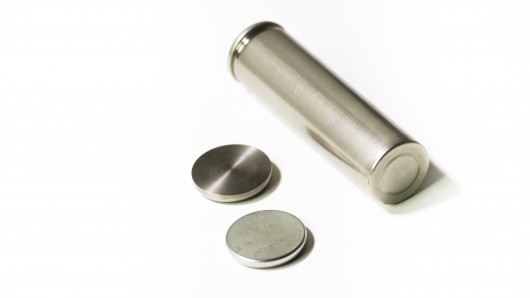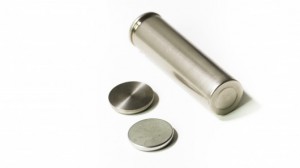May 22, 2014 – What is holding back wider adoption of electric vehicles (EVs)? The power and mileage limits of the battery and recharge speed. These are the limitations of lithium-ion technology found in every EV on the road today. But that may come to an end if the battery (seen in the image below) developed by Power Japan Plus is mass produced.
It doesn’t look like much but this battery is a disruptor with considerable potential. It’s called the Ryden dual carbon battery. It has the same energy density as lithium-ion but is made of carbon. The company is even making the battery materials from what it calls organic carbon.
The Ryden carbon battery charges 20 times faster than lithium-ion and is rated for more than 3,000 charge and discharge cycles. Compare that to lithium-ion which in the case of the Tesla Model S sedan is rated to be good for up to 1,500 charge and discharge cycles.
The Ryden carbon battery doesn’t overheat. That can’t be said for lithium-ion although incidence of abnormal heating and fire have been rare.
The Ryden carbon battery contains no rare earth or heavy metals. Every lithium-ion battery in an EV contains 1 kilogram (2.2 pounds) of rare earth metals.
The Ryden carbon battery is 100% recyclable. Today we are just beginning to develop battery-recycling for EVs. That’s because very few have reached end-of-life usage to warrant the need. And although most components in current lithium-ion batteries can be recycled the process for recovering the heavy metals and other materials requires specialized plants.
Japan Power Plus plans to manufacture 18,650 Ryden batteries this year with biomedical and space science customers already lined up. For EVs the company intends to license the technology to manufacturers.
The Ryden carbon battery was developed at Kyushu University in Japan, the same designers involved in the batteries found today in the Toyota Prius and the Tesla Model S. So it would seem that these folks know what they’re doing.
With Tesla planning to build a massive battery manufacturing facility in the United States, it may be prudent for the company to consider this new battery for production. Do I hear Elon Musk picking up the phone to make a call?










